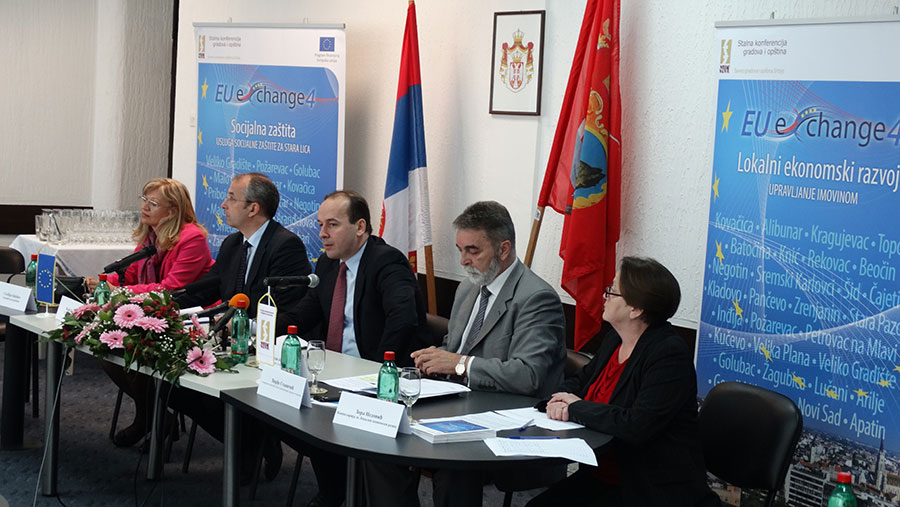Exchange Programme kicked off in 2004, with the aim to bring Serbian municipalities closer to, and facilitate implementation of, EU practices. With the financial support from the EU worth some EUR30 million, the projects have been implemented by the Standing Conference of Town and Municipalities.
The three initial stages of the Programme lasted from 2004 to 2013, with a total value of around EUR22 million. 116 project have been implemented, improving the efficiency and capacity of local self-governments.
Fourth phase of the Exchange Programme ran from 2013-2015, in the total amount of EUR5.8 million, provided by the EU. EU Exchange 4 Programme focused its activities on strengthening of local self-governments’ capacity for planning, finance and service provision.
Specific goals have been divided into three components. Component 1 – Municipal planning and SLAP support refers to implementation of relevant national priorities through linking LSG sector strategies and action plans and development of pipeline of specific sectors municipal infrastructure projects.

Waste is not garbage, project in Užice municipality
Component 2 – municipal finance support was focused on the implementation of new financial regulations, introduction of programme/capital budgeting and implementation of alternative sources of financing, whereas the third – Grant Scheme – is designed to support the implementation of priority national policies in identified priority areas such as economic development, social services and environmental protection at the local level.
The Programme supported a total of 85 towns and municipalities, out of which 69 have received support within the Grant Scheme. This component alone supported 32 town and municipal projects in the areas such as waste management, property management, agricultural and business cooperation and social protection.

“In a certain way, local self-governments are the cornerstone of both public administration and the source of implementation of all crucial reforms and standards,” said on this occasion Head of EU Delegation to Serbia Michael Davenport.
Kori Udovicki, Minister of Public Administration and Local Self-government said that the projects was focused on the improvement of strategic planning in local self-governments. “Local self-governments have to make more efforts to, not only better manage their own, but also European resources which are currently well underused. We expect two thirds of uropean funds to be spent at the local level in the future.”
Secretary General of SCTM Djordje Stanicic said that these funds “were used for municipal planning, municipal funding and implementation of appropriate projects.” During four phases of the Programme, according to Stanicic, the image of local self-governments has been raised and reached the “level that pleases us here in Serbia and, I would say, our counterparts in the EU.”
The following documentary shows some of the results – environmental protection plan designed and implemented in Krusevac; the construction of community swimming pool in Sabac facilitated through a new system; registration of public property in Nis. Bac has improved its strawberry production, Uzice managed to create alternative energy sources from wood and bio mass, while the elderly, single and socially vulnerable households in Sjenica were provided with support from gerontology nurses.
Documents, brochures and more information about the EU Exchange Programme can be found here




